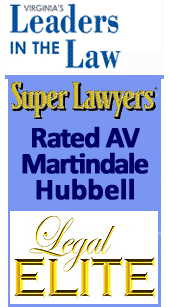ANALYSIS OF APRIL 18, 2024 SUPREME COURT OPINIONS
(Posted April 18, 2024) Today is the 25th anniversary of a signal event in North American sports: On April 18, 1999, The Great One played his last NHL game. Wayne Gretzky closed out a nonpareil career that day, logging a single assist in a 2-1 overtime loss by his New York Rangers against the Pittsburgh Penguins. In a passing-the-torch moment, the winning overtime goal was scored by the Pens’ young superstar, Jaromir Jagr.
These facts come readily to mind because I made a point of watching the game (on television; not at Madison Square Garden). I also ensured that my favorite daughter, then aged 4½, saw at least some of it, too, in the hope that she would form at least some lasting memory of seeing Gretzky play.
For those of us in the law, today is also noteworthy as the birthdate of one of the greatest lawyers in American history. Clarence Darrow breathed his first on this date in 1857. Darrow personified courage in legal advocacy, taking on the defense of disfavored litigants and representing them with a skill that we can only hope to approach.
To modern Americans, Darrow’s most famous client was the Tennessee schoolteacher John T. Scopes, prosecuted by the state for daring to teach the theory of evolution in the 1920s South. This is the trial in which Darrow’s famous adversary, William Jennings Bryan – brought in as a star litigator for the prosecution – unwisely displayed the hubris of consenting to have Darrow cross-examine him as a claimed expert on the Bible. He may have regretted that after being skewered on the witness stand by Darrow for several hours.
Many people may not recall that the judge in the case directed a jury verdict of guilty and fined Scopes $100. It ended well for the teacher: The Tennessee appellate courts reversed the conviction.
Let’s turn to business: The Supreme Court of Virginia hands down two published opinions today. Both involve criminal matters. In Vasquez v. Dotson, the justices adjudicate an original-jurisdiction habeas petition filed by a prisoner held in custody on the Northern Neck. Indicted for first-degree murder, Vasquez struck a deal to plead to an amended indictment charging conspiracy to commit a felony. He pleaded guilty to a companion charge related to street-gang criminal activity. He received a ten-year sentence with five years suspended for each of these charges, for a total of ten years to serve.
Starting in 2022, inmates serving prison sentences got a break from the General Assembly, which expanded the calculus of time off for good behavior. Previously, prisoners could accumulate 4½ days of such credit per month, but the new statute allowed some of them up to 15 days per month. The act excluded certain serious felonies, specifically including murder.
Vasquez realized that if he got the benefit of the new calculus, he’d be entitled to breathe the sweet air of freedom. (I infer that this means he stayed out of trouble while in prison.) He sought release, but the Director of Corrections felt that the predicate felony for his conspiracy conviction – attempted murder – disqualified him.
Today the Supreme Court rules unanimously in favor of Vasquez. It holds that the language of the statute plainly doesn’t include the conspiracy offense among disqualifying charges. Conspiracy is a wholly different offense from the underlying act; it isn’t a lesser-included offense. Because (unlike murder itself) it isn’t enumerated, the court declines to speculate on what the legislature may have meant.
This holding gives Vasquez what he asked for: immediate release from prison. This being the Supreme Court of Virginia, today’s opinion naturally includes a paragraph distancing the court from the policy choices behind the new statute. The legislature created this framework, so if you don’t like the outcome, the court implicitly says, look to that body for an explanation.
Legislative grace is also at the heart of Hannah v. Commonwealth. This is an appeal of an order revoking suspended sentences. The circuit court imposed a probation term in 2017 for an indeterminate period, as the law allowed at that time.
During Hannah’s probationary period, he violated his terms by using drugs, starting in March 2021. Probably unknown to him, the General Assembly was at that very time working on a bill that would restrict the duration of sentence suspensions to the statutory maximum sentence for the offense. The previous rule allowed an unlimited term. That bill became law on July 1, 2021.
Alas; poor Hannah had already triggered a revocation proceeding. The circuit court revoked his suspended sentence the next year, but then resuspended it, again for an indeterminate time.
At issue in this appeal is whether the 2022 order was void or voidable. This matters because, in the interim, the Court of Appeals had held that Hannah’s appeal points weren’t preserved for review. The justices analyze caselaw distinguishing void and voidable orders and decide that the 2022 order was at best voidable. That meant that Hannah had to preserve it in the trial court, and he hadn’t done that. The Supreme Court accordingly affirms the Court of Appeals’ judgment.
ANALYSIS OF APRIL 11, 2024 SUPREME COURT ORDER
(Posted April 11, 2024) We get an interesting decision, in the form of a non-decision, this morning from the Supreme Court of Virginia. In Commonwealth v. Browne, the justices dismiss an appeal as moot.
This is an appeal of a probation-revocation proceeding. Browne received a partially suspended sentence, but was unable to stay out of trouble thereafter, resulting in multiple revocation proceedings. At one point, the Page County Circuit Court revoked him and reimposed a portion of the original sentence. Browne felt that the reimposed potion of the sentence was impermissibly high – there are caps on what courts can do in some circumstances – so he appealed.
He won in the Court of Appeals. That court ruled that the circuit court had to resentence him properly. But the Commonwealth appealed and got a writ, so the Supreme Court would have the last word.
Remember when I reported that Browne just couldn’t stay out of trouble? While the appeal was pending, he received enough free room and board that he finished serving the entirety of the original sentence. That means that despite his being right on the appeal, he wouldn’t get a reduction in his active incarceration time even if he ultimately prevailed. He even told the Supreme Court so while the case was pending there.
At oral argument in late February, the justices asked the parties whether Browne’s completion of the original sentence made this whole thing moot. Both parties contended that the answer was no, but today The Robes disagree. In a published order released today, the court notes that any decision on the merits wouldn’t change anything about Browne’s sentence. And since he was only appealing the amount of time imposed in the revocation proceeding, and not the fact of revocation, this proceeding couldn’t do anything other than make a retroactive declaration.
Today’s unanimous order directs the vacation of the CAV’s opinion and dismisses the case. As with all orders, we can’t know who wrote this one.



